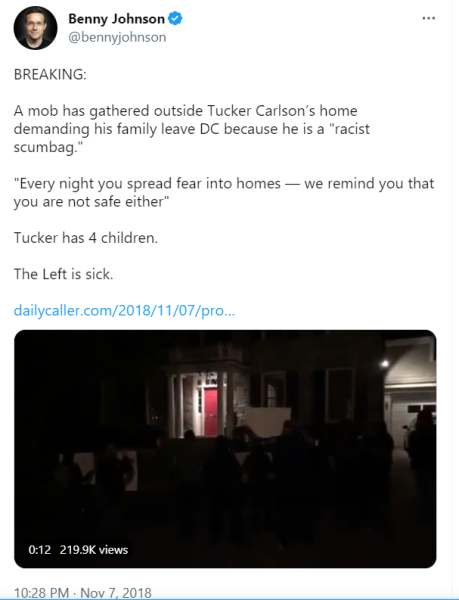AN INTERESTING HYPOTHETICAL: WHEN IS IT DOXXING? Stephen Green’s earlier post made me wonder, “How in the hell can these people complain, when they keep voting for legislators who openly plan to ruin the communities they represent?”
Amusingly, we constantly hear from the leftists who insist that Clarence Thomas is not really black, or Condoleezza Rice is not really a woman because they “legislate against their own interests.” At first blush, I find that appalling, because frankly, how does a well-off, white, Ivy-League editorialist get to wrestle self-determination away from someone else? It’s not just dehumanizing, it’s condescending and kind of…fascistic.
But here’s the hypothetical I would present to journalists and bloggers: We know from the public record that Oregon State Rep. Farrah Chaichi is the sponsor of the bill that essentially gives homeless people property rights over public spaces. That leads one to wonder if any of these homeless encampments are near Chaichi’s residence.
Aye, there’s the rub. I am not suggesting to anyone that they locate her residence and publicize it. But would it be “doxxing?” I have no doubt that if someone were to post her address or a picture of her home, they would be accused of “inciting harm” or “inviting violence.” That’s not a statement without merit, although the left are historically famous for doing just that, especially to judges who issue rulings with which the cybermob disagree. And that same mob often punches down much lower than just judges: News commentators like Tucker Carlson who are targeted for vilification have had their families confronted at their homes by Antifa nuts and others on the far left:
Some of you may remember the boneheaded move by The Westchester Journal News, who in 2012 published an interactive map listing names and addresses of licensed and registered gun owners. Although the paper eventually removed the post and apologized, by then it was too late. That map (and the names and addresses of perfectly law-abiding gun owners) is still floating around. The internet is forever.
But at what point does that residential information become important to telling the whole story? And can it be presented without raising security concerns? (As an aside, when I was at Bloomberg News, we did the same kind of story regarding guns, but at my direction our data only showed how many registered weapons were in a particular zip code: no names, no addresses.)
Should Chaichi’s residential address be sussed out and published? Would it be fairer or less offensive to simply describe the neighborhood in which she lives, and go look to see if there any homeless encampments nearby? Or is her address crucial to telling the story?
Discuss, I’ll go make coffee.

